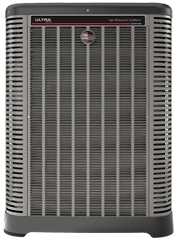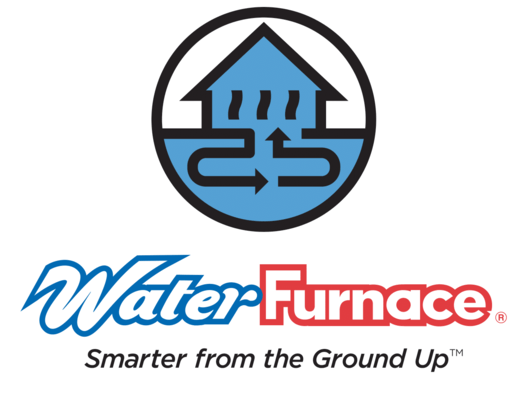Understanding Your Water Heater Installation Needs
When you’re facing cold showers or inconsistent hot water, a new water heater installation becomes essential for maintaining comfort in your Hot Springs, AR home. At Daniell Heat & Air, we understand that selecting and installing the right water heater involves careful consideration of your household’s specific requirements, from daily hot water usage patterns to available space and energy preferences. Our experienced technicians evaluate factors including your family size, peak usage times, and the number of bathrooms and appliances requiring hot water to recommend the optimal system capacity and configuration for your needs.
The decision between tank and tankless water heaters significantly impacts your home’s energy efficiency and hot water availability. Traditional tank water heaters store between 30 to 80 gallons of heated water, providing immediate access but consuming energy continuously to maintain temperature. Tankless systems, alternatively, heat water on demand through high-powered burners or electric coils, eliminating standby energy losses while providing endless hot water supply. We service most major brands of equipment, ensuring you have access to reliable options that match your preferences and budget requirements throughout Hot Springs National Park, Royal, Rockwell, and Piney areas.
Professional Installation Process and Safety Considerations
Proper water heater installation requires precise technical expertise to ensure safe operation and optimal performance. Our installation process begins with disconnecting and removing your existing unit, followed by careful inspection of gas lines, electrical connections, and plumbing infrastructure. We verify that your home’s electrical panel can support the amperage requirements for electric models, typically ranging from 20 to 50 amps depending on capacity, or confirm adequate gas supply pressure and ventilation for gas-powered units. These critical safety checks prevent potential hazards including carbon monoxide exposure, electrical fires, and water damage from improper connections.
Building codes in Arkansas mandate specific requirements for water heater installations, including proper ventilation, temperature and pressure relief valve placement, and expansion tank installation when necessary. Our certified technicians ensure compliance with all local regulations, installing seismic straps in designated areas, maintaining required clearances from combustible materials, and configuring drain pans with appropriate overflow piping. We coordinate with local inspection authorities to secure necessary permits, protecting your investment and ensuring your installation meets all safety standards required in the Hot Springs area.
Energy Efficiency and Cost Savings Analysis
Modern water heater technology offers substantial energy savings compared to older models, with efficiency ratings playing a crucial role in long-term operating costs. Energy Factor ratings measure overall efficiency by considering standby losses, cycling losses, and recovery efficiency, with higher EF values indicating better performance. Heat pump water heaters, for instance, achieve EF ratings exceeding 3.0 by extracting ambient heat from surrounding air, consuming 60% less electricity than conventional electric resistance models. Gas-fired condensing water heaters utilize secondary heat exchangers to capture exhaust heat typically wasted in standard models, achieving thermal efficiency ratings above 90%.
Investment in high-efficiency water heater installation typically generates returns through reduced utility bills within three to seven years, depending on usage patterns and local energy costs. We’ve been proudly serving our local community with top-of-the-line products, service, and maintenance for years and hope to do the same for you today by helping you analyze potential savings based on your specific circumstances. Factors influencing payback periods include current water heater age and efficiency, household hot water consumption averaging 64 gallons daily for typical families, and utility rate structures including time-of-use pricing available through local providers.
Selecting the Right Water Heater Type and Features
Choosing between electric, natural gas, propane, or hybrid water heaters depends on available fuel sources, installation location, and performance priorities. Electric water heaters offer lower upfront costs and simplified installation without venting requirements, making them ideal for interior closets or basement installations. Gas models provide faster recovery rates and lower operating costs where natural gas infrastructure exists, heating water approximately twice as fast as electric alternatives. Propane units serve rural properties beyond natural gas service areas, delivering comparable performance with slightly higher fuel costs.
Advanced features enhance convenience and efficiency while extending equipment lifespan through intelligent operation. Smart water heaters incorporate WiFi connectivity enabling remote temperature adjustment, usage monitoring, and leak detection through smartphone applications. Self-cleaning systems reduce sediment accumulation through periodic high-temperature cycles or powered anode rods generating turbulence to prevent mineral deposits. These technological improvements address common maintenance issues while optimizing performance throughout the equipment’s operational life.
Maintenance Requirements and Warranty Protection
Regular maintenance extends water heater lifespan while maintaining efficiency and preventing unexpected failures. Annual maintenance tasks include:
- Temperature and pressure relief valve testing ensures proper operation preventing dangerous pressure buildup
- Anode rod inspection identifies corrosion levels requiring replacement typically every three to five years
- Sediment flushing removes mineral deposits reducing heating efficiency and tank capacity
- Combustion chamber cleaning for gas models maintains proper flame characteristics and ventilation
- Electrical connection inspection identifies loose terminals or deteriorating insulation requiring attention
Manufacturer warranties vary significantly between brands and models, typically covering tanks for six to twelve years and components for one to three years. Extended warranty options provide additional protection against unexpected repair costs, particularly valuable for premium models with complex electronic controls or heat pump systems. Our installation services include comprehensive warranty registration and documentation, ensuring you receive full manufacturer protection while maintaining detailed service records supporting future warranty claims. Professional installation by certified technicians preserves warranty validity while ensuring optimal system configuration for maximum longevity and performance throughout your Hot Springs, Hot Springs National Park, Royal, Rockwell, or Piney property.





